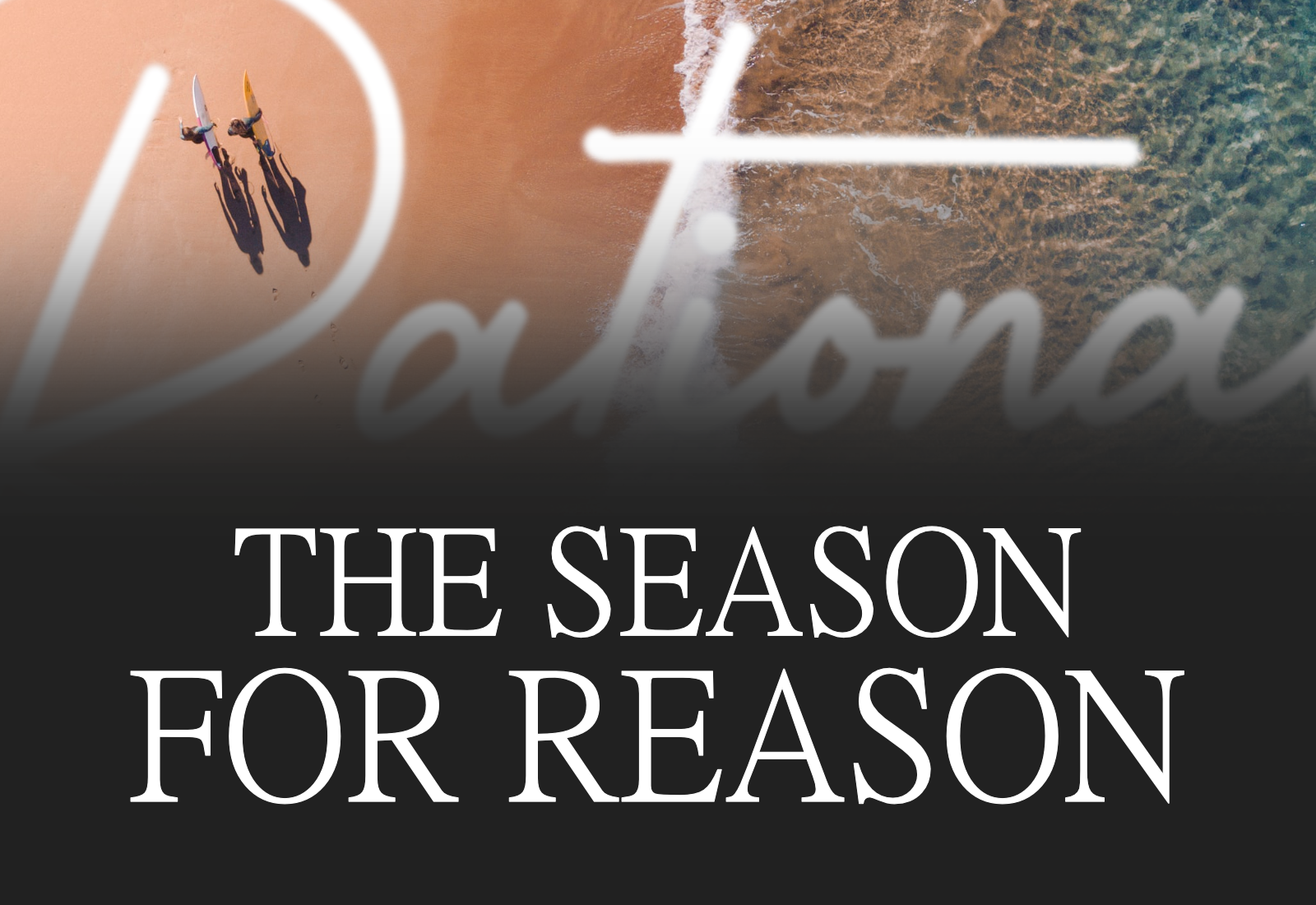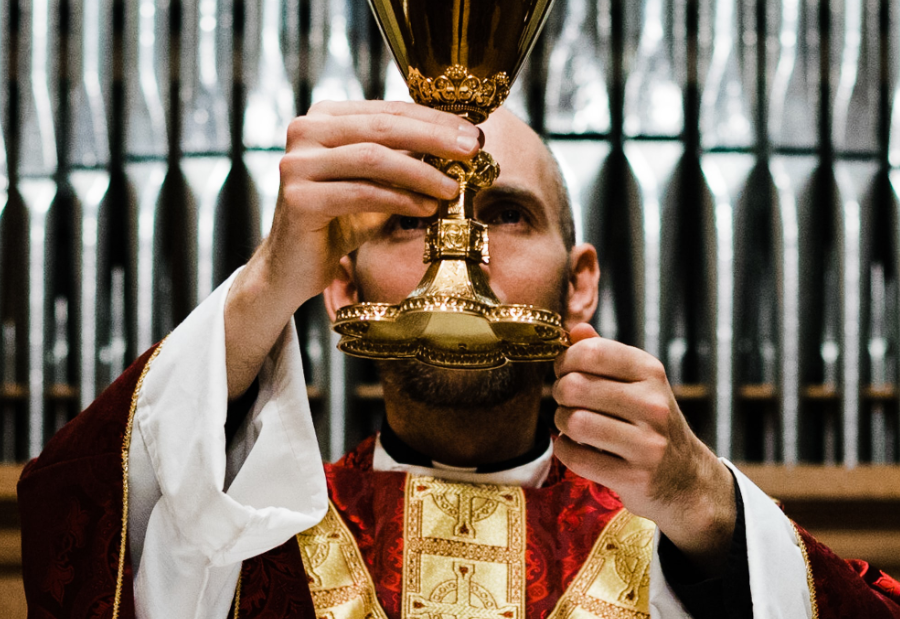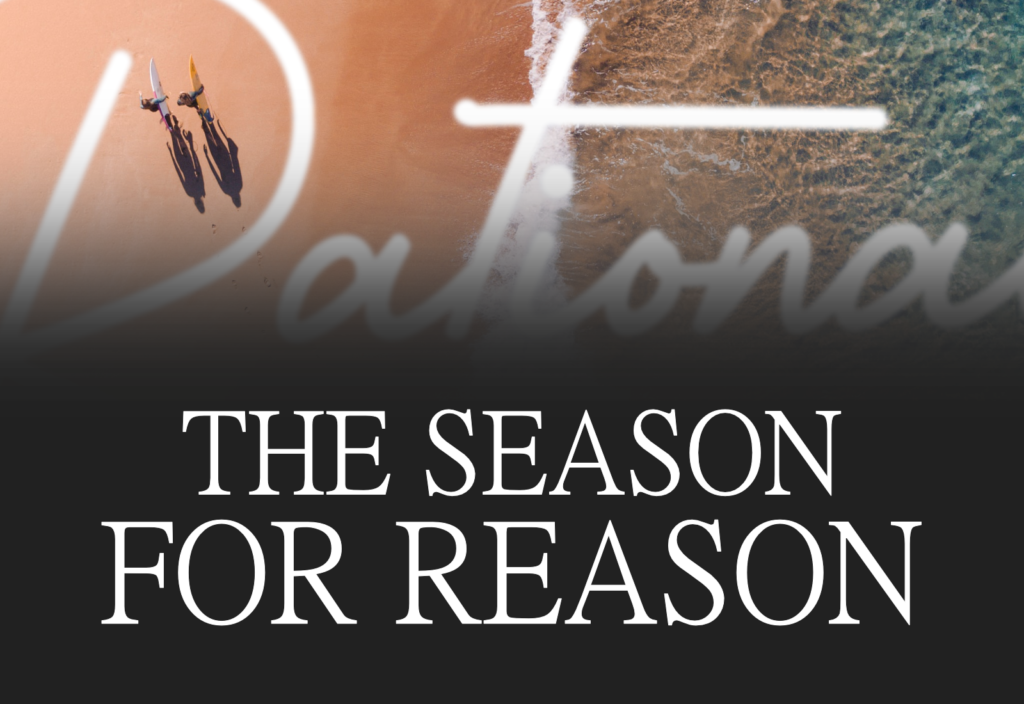This is Part 2. You can read Part 1 here.
Distinguishing faith and reason
Richard Colledge, in ‘Intellectual Assent and the Value of Disagreement: A Response to Nick Trakakis’, provides an interesting discussion of the ‘reasons for disagreement’. He contends the founding premises of our beliefs are informed by ‘gut intuitions’. These intuitions are influenced by such things as our genes, early-life experiences and traumatic events, socio-cultural influences, the structure of one’s language, the geographic and political context, and religious instruction. Experimental psychologists have scientifically identified these sort of tribal influences as having produced cognitive biases.
Referencing William James’ ‘The Will to Believe’, Colledge contends that “underlying pre-rational passions and volitions” inform which “truth-claims are more or less on the table”. Colledge’s ‘gut intuitions’ are the human fogginess in the enchanted glass. There’s no doubt that human beliefs are informed by reasoning which is unduly influenced by non-evidential factors. But it doesn’t follow that abstract concepts such as reason and faith are artificially conjoined by human folly. Colledge contends: “Faith and reason are not hermetically sealed rival domains – the so-called disjunction of Athens and Jerusalem – requiring us to either suppress one and champion the other (hence the alternatives of hyper-rationalism or fideism), or try to find a way of breaching the abyss between them through some kind of uneasy balance.”
Colledge’s argument mirrors James’ argument that, because humans use faith to form beliefs, then faith must be indelibly bound to reason – i.e. because humans practise it, it must be so. But acknowledging the human propensity to prematurely form beliefs using cognitive biases such as wishful thinking does nothing to suggest that those biases contribute to the epistemological status of the hypothesis. What humans believe has no bearing on reality.
The scientist’s test is not made more likely of success because he has a hunch it might be true. Just because humans are prone to make these mistakes doesn’t imbue them with virtue. Humans are inclined to apply faith to hypotheses with insufficient evidence. Acknowledging this unremarkable fact should not compel us to enjoin the magisteria of faith and reason. To the contrary, it should stiffen our resolve not to conflate them.
Since the world exists independently and objectively, then reason ought to be the most efficient and effective way of ascertaining knowledge of the world. Perhaps reflecting centuries in near universal religiosity, philosophers, attempting to define ‘reason’, often presume it only applies to humans. Despite this, we see other animals in nature displaying the use of reason, albeit at a more primitive level. Reason is a variable faculty in humans, as it is in nature. We easily envisage the possibility of alien life forms using reason much better than we do. We expect man-made technology to assume and even out-perform the human capacity for reason sometime in the future. Reason is an abstract concept that needn’t be limited by humans.
We ought to use the concept of reason to find the best path to knowledge. We must distinguish reason and human reason. To accept reason as subject to the passions of humans is to limit the human project. And to succumb to the rationalisation that evidence plus a dash of faith constitutes reason is gaming the system to achieve a preordained result.
The faith claims of religion are not susceptible to reason’s weighing of evidence because they contain none. Artificially moving the concentric circles of the two domains over one another may provide hope for holders of unverifiable beliefs, but that hope is a mirage.
As Trakakis argues, the problem with religious faith is assuming that we know the truth to start with. We are not open to honest enquiry if we assume to know the truth on faith, as if faith constitutes an article of evidence in itself.
Can we imagine religion without God?
Having separated faith and reason, let us now attempt to reunite them again. There is nothing wrong with faith per se. My argument merely notes faith is an attitude of trust not an article of evidence. If we cannot have faith in God, what then do we put our trust in?
In Western societies, the supernatural claims of Christianity are waning. In the post information-explosion world, faith is no longer enough to perpetuate extraordinary claims which continue to elude proof. The question becomes whether religion can survive and in what form. The diverse and changeable history of Christianity suggests that it may live on.
The beliefs of Christianity have changed continuously from the 1st and 2nd century until now. The original belief in a heaven on Earth was reinvented to a supernatural one when the “imminent” second coming failed to arrive. From Judaism to Gentile Christianity, to medieval Christendom, from Protestantism to Enlightenment secularism and to the myriad modern Christian sects, the dogma and doctrines of Christianity have been debated, revised and reinterpreted. Christianity is nothing if not resilient.
That is why it’s possible to envisage the religion that will replace Christianity is Christianity itself – a new form which reimagines theology by placing faith entirely within the realm of reason. Consider a new Christianity without its unverifiable and contested supernatural propositions. Consider how much stronger faith would be when unshackled from fancies and clamped on hard to the real world.
Rather than providing ‘fullness to reasoning’, faith can become an attitude of trust to reason. Not, mind you, the elevation of human reason to exalted status, or the reification of reason to the point where it’s harmful. But simply a trust in using evidence to form knowledge, whilst acknowledging the limits of knowledge. In a religious sense, trust can be extended to using reason to seek wisdom – the wisdom necessary to properly define and fulfil the mortal human project.
In Western societies, the supernatural claims of Christianity are waning. In the post information-explosion world, faith is no longer enough to perpetuate extraordinary claims which continue to elude proof.
By following reason rather than faith, the metaphysical claims of a deconstructed Christianity would become natural rather than supernatural. The Sermon on the Mount loses none of its force if we accept a non-divine view of Jesus. The tale of the Good Samaritan may or may not be based on a real event. In terms of its use as a parable in the modern age, its truth is neither here nor there. Also, regarding Jesus as a mortal teacher and a moral compass allows the sort of mutability envisioned by Sigmund Freud. The existing teachings and values of Christianity can change according to their utility and relevance.
The power of mythology is not its perceived truth, but the power to unify. Myths have defined societies from prehistory to the present day. Today, we witness the myths of religion replaced with conspiracy theories and a fragmented set of social networks. Modern humans participate in a wide array of disparate preoccupations, including social networking, meditation, reality television, online gaming, personal development, political causes, literary pursuits, sporting and social clubs, weight-loss schemes, personal fitness and so on. Replacing the sense of community of religion with their own narrow values and aspiration, these are pseudo-religions.
No doubt modern society would benefit from the rituals and healing of organised religion under an umbrella of shared values. But, in modern pluralist societies, unity cannot be achieved by exclusionary religious groups practising a narrow set of beliefs. Whereas once unity was achieved by universal conformity and punishment of dissent, nowadays it could only be achieved by a broad and inclusive philosophy.
Reprising the earlier discussion of provisional beliefs, there might be a way for Christians to maintain some theistic beliefs without offending reason. It is not unreasonable to admit the mystery of existence whilst entertaining a notion of a creator God. Provisional beliefs in cherished aspects of Christianity could survive, whilst acknowledging alternative theories and competing views occupy equal status. Embracing uncertainty, and admitting the limits of knowledge, will become tools to regulate beliefs.
No more rules
The dogma will go. Consider how few of the 613 Mosaic Commandments of the Old Testament – including edicts such as, “Break the neck of a calf by the river valley following an unsolved murder” – remain relevant today. Add to this the disproven stories, such as Genesis, Noah’s Ark, and the Exodus, and it is not hard to imagine postmodern Christians taking a more agnostic attitude to the metaphysical and doctrinal claims derived from The Book.
A new Christianity may become a melting pot of Christian humanism, secular humanism and a philosophy. Christian humanism has a long tradition dating back to Justin the Martyr and other 2nd century writers. Using the teachings of Jesus and selectively using other parables from the Bible might form the basis of a non-theistic Christian ethics.
This is not to say that Christianity will simply become secular humanism. Humanism is a broad and loosely defined movement derived from both Christian and secular influences. As an ethical philosophy focussed on humans eschewing the supernatural or transcendent, humanism is not as broad in scope or ambition as Christianity. But the rituals and institutions of Christianity could transform humanism into a theological project. One can readily imagine the commingling of the rituals, philosophies and ideas of both resulting in a new type of religion.
Rather than a set of fixed beliefs and creeds, the ‘religion’ becomes a collection of ideas aimed at remodeling and convalescing humankind. The religion would more realistically produce ideas on how to improve the human condition – ethically, spiritually and philosophically. The consensus of human knowledge would form a basis for human betterment.
Capturing the essence of what is human and how to describe human nature would inaugurate such a project. An unsentimental and non-Arcadian picture of humans and our natures is by no means a finished project. Since our scientific understanding of human nature is incomplete, our philosophic meditations on human nature will necessarily be provisional. The study of human nature cuts across many fields. Any progress made in solving the ‘hard problem of consciousness’, understanding the origins of life and describing the elements within the universe will all contribute to a deeper understanding of the human condition and our place within the universe.
Our knowledge is still in its infancy. We are no wiser on the best way to live than were our ancestors in Aristotle’s time. We’re not even much wiser than the humans who blew their handprints in red ochre on cave walls 25 thousand years ago. We’ve had thousands of years of erroneously assuming we are the centre and pinnacle of creation, the lone species for whom a divine purpose has been set out, preparing ourselves for a mythical life after death. We need to unlearn all that.
Lloyd Geering’s Christianity Without God describes a pathway for Christians to reconcile and combine the cultural heritage of their religion with humanism. Geering argues humanism is a product of Christian thought, and describes the continually changing nature of Christianity. Daniel McGuire’s 2014 book of the same name argues for a “moratorium on god-talk so that together we could explore alternatives to Earth’s current social, political, economic, and ecological distress”.
We have seen emergent Christian movements such as Peter Rollins’ Ikon communities, offering a religion without religion, using transformative art. One of the most admired Christians of the 20th century, Dietrich Bonhoeffer, wrote a series of letters from prison speaking of a ‘religionless Christianity’. Though Bonhoeffer demurs from religion, not from faith, his focus on the provisional nature of belief has been taken up later by postmodern Christian offshoots such as Jesuism, Christian atheism, and Paul van Buren’s Death of God movement. Bonhoeffer writes: “We cannot be honest unless we recognize that we have to live in the world etsi deus non daretur (as if God is not given). And this is just what we do recognize – before God! God himself compels us to recognize it… The God who lets us live in the world without the working hypothesis of God is the God before whom we stand continually. Before God and with God we live without God. God lets himself be pushed out of the world on to the cross.”
In the Netherlands, 42 per cent of Protestants don’t believe in God, and one in six pastors are agnostic or atheist. One of its ministers, Klaas Hendrikse describes God not as a deity but as an expression of human experience. In his book, Believing in a God who does not exist: Manifesto of an atheist pastor, Hendrikse argues that God is a word for what connects people: “Someone says to you, for example, ‘I will not abandon you’, and then makes those words come true. It would be perfectly alright to call that God.”
The existential mystery is central to the religious urge. To echo the Tasos Leivaditis poem, Violets for a Season (quoted by Trakakis), we stretch out our hands toward the infinite like lost children. The handshake with the infinite never happens. But the hope of finally grasping hold of the keys to our existence is nevertheless exhilarating. Many modern non-theists foresee a day when religion will no longer exist. Personally, I doubt it.
I recently watched a moving documentary about the devastation caused by the Chinese Sichuan school collapse. Many parents lost their children in the disaster. In one moving scene, we see a mother at dusk on the 5th anniversary of her daughter’s death. She lights a sky lantern. Rising slowly, its red glow gradually animates an expression of inconsolable despair on the mother’s face. She clasps her hands in prayer. Family members cling to each other, all looking upwards: “My beautiful daughter. I have to believe that you are happy in your life in heaven. When I look to the sky, you are the brightest star.”
Other than with religion, how else could the mother reconcile the immensity of her loss? The mother cannot cease being a mother. If there are better ways of soothing human despair than this, and there must be, then we have so far failed to find them. Acknowledging the obvious self-delusion does nothing to invalidate the urge to ancestor worship and false consolation embedded within our psyche. If we intuitively practise religion in certain situations, then we must at least acknowledge the deep human need for worship.
In his influential Kenyon college commencement speech ‘What is Water’, David Foster Wallace asserts that “… there’s no such thing as not worshipping. Everybody worships. The only choice we get is what to worship”. A good reason for religious or spiritual worship is that anything else will ‘eat you alive’. Worship money and you’ll always be poor. Worship appearances and you’ll always be ugly. Worship power and you’ll be weak. Worship the intellect and you’ll never be smart enough.
Wallace’s message acknowledges the human need for meaning and communion with others, and to exercise control over our mind. His overall message is that the most obvious and important realities are often the most difficult to see.
Humans have long tried to exercise dominion over the Earth. But the organ that we need to subdue is the one inside our own craniums. The mind of man remains an enchanted glass. We can only attempt to tame its lavish appetites by continually refilling it with evidence. And once the glass is clear and the beams of light travel straight and true, what we see might seem so obvious we will wonder how we never noticed it before. The deus ex machina of religion, the phoenix arising from the ashes of dogma, is doubt and uncertainty. Reason and evidence are the best hope of revitalising the religious project.
This article is being republished in two parts as part of our ‘The season for reason’ series of holiday reading focusing on rationalism and reason. The article was originally published as a whole as ‘Defogging the Enchanted Glass: A fundamental examination of the intersection of reason and belief’ in the Winter 2016 edition of Australian Rationalist. Minor changes have been made in the republished article.












